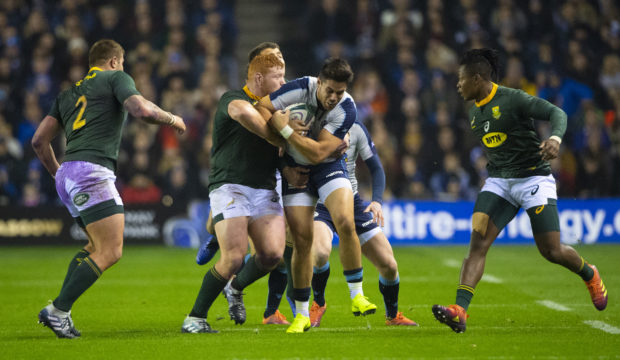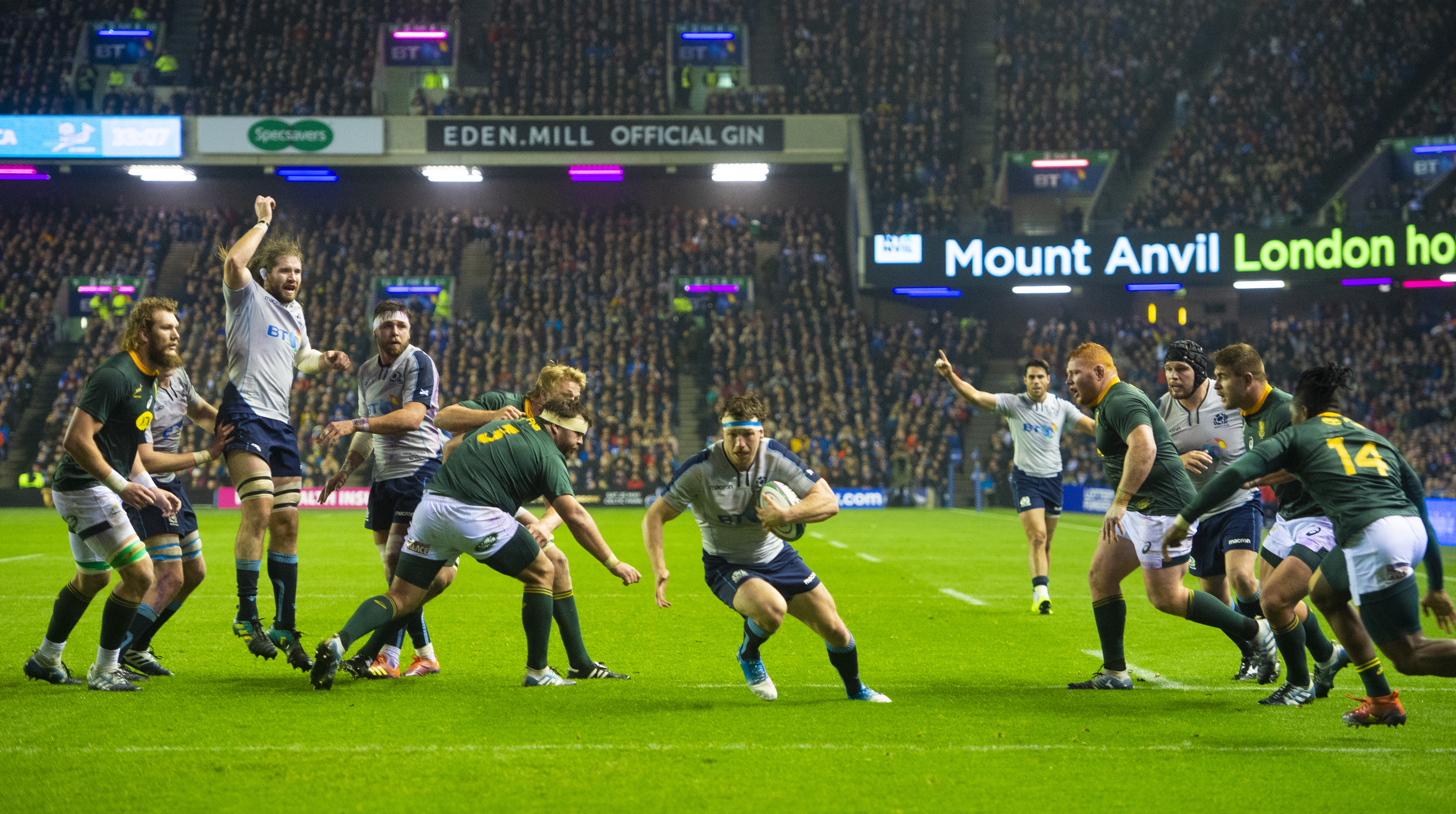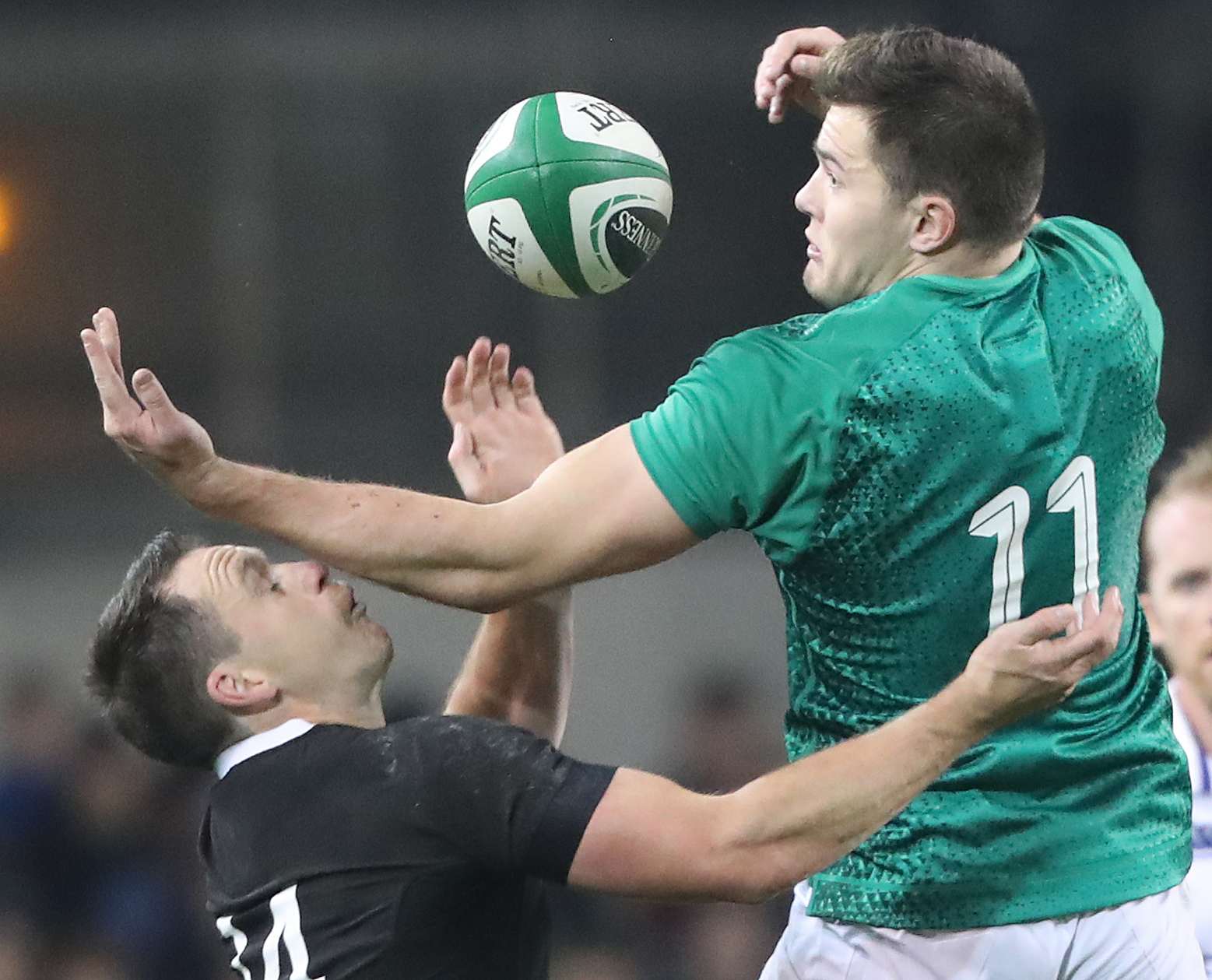Sometimes, it’s the little things that make the biggest difference. This reality was rubbed home with a vengeance while watching Scotland and Ireland square up to South Africa and New Zealand respectively.
The Scots, who once again produced slivers of scintillating rugby brilliance, fell short 26-20 because they chose positivity over pragmatism. Pitted against a typically belligerent Springbok pack, they had the chance to level the score at 23-23, but rejected the penalty option in favour of chasing a third try.
It wasn’t a bad tactic, considering the fashion in which Hamish Watson snaffled their second touchdown, but their attacking philosophy came to nought. And that summed up the proceedings where South Africa seemed more interested in an arm-wrestling contest throughout the whole of the second half.
Yet, their one-dimensional approach paid dividends. Having succumbed to England in controversial circumstances earlier this month, they rallied from trailing 23-9 against France last week to earn a last-gasp success and demonstrated again at Murrayfield the fine margins that exist at Test level.
Man for man, they weren’t superior to Gregor Townsend’s team. But Rassie Erasmus’s side mastered the basics better and even survived Willie le Roux’s sin-binning without being punished.
In the end, their streetwise physicality triumphed and Scotland were on the wrong end of a second sobering lesson during their autumn programme. There’s a time to sparkle and a time to get your hands dirty and, despite often being a joy to behold, the statistics don’t lie.
So far, Wales have beaten Australia, England have defeated the Springboks and Ireland have prevailed over New Zealand – these are all significant wins in comparison with the Scots, who have only got the better of Fiji and really need to finish with a flourish against Argentina.
In stark contrast, the Irish proved yet again they are one of the most potent forces on the global stage. There were no nerves, no sign of the expectation among their fans putting added pressure on their shoulders as the All Blacks performed the haka.
Instead, Joe Schmidt’s side imposed their authority on their rivals, maintained their composure amid the cauldron of noise inside the Aviva Stadium, and, crucially, took their chances in building a 16-6 lead.
One wondered if they would be able to withstand the onslaught from the world’s No 1 ensemble. But they had as many big hits as U2 in stemming the tide and there aren’t many matches where the Kiwis fail to engineer at least one try.
This 16-9 reverse was one of them and it highlighted the threat that the Irish – who are in Scotland’s World Cup group – will pose when the competition begins next September.
Schmidt was right to dismiss the post-match claim from All Blacks coach Steve Hansen that the current Six Nations champions will be favourites in Japan. But he and his players know they can beat anybody on their day and have a real sense of momentum with them. They’ve now managed a brace of victories over New Zealand in the last two years. Scotland are still chasing their first win after more than a century.
Townsend’s troops aren’t far behind in the pecking order. And they will fancy their chances when their Celtic cousins visit Edinburgh next spring. But while they have more than enough potential to threaten a breakthrough in the next 12 months, Ireland have already done it.



